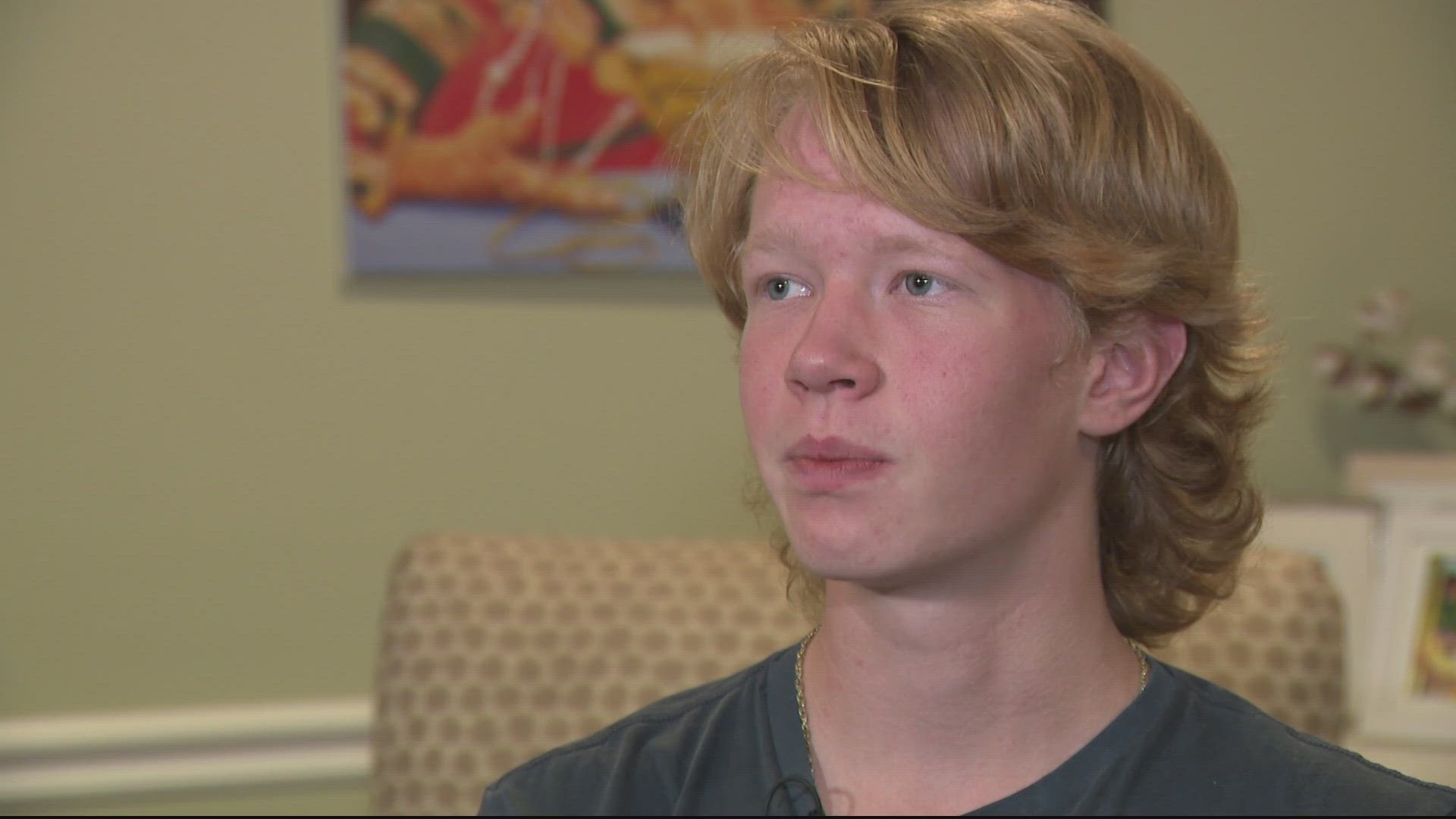MONTGOMERY COUNTY, Md. — A Montgomery County family is sharing their story in hopes that someone will be able to save the life of their teenage son.
Dylan Cronkhite, 15, needs a new kidney and he needs it very soon. At just 19 months old, Dylan's kidneys began failing.
"I was worried about him because he seemed lethargic, so I said, I'm going to take him to the urgent care unit, and they're going to tell me I'm a worried mom. Go home," Dylan's mother, Leslie Cronkhite, remembered. "And they said, We're ambulancing your child to Children's Hospital."
Fortunately, his uncle was a match. He donated a kidney and saved Dylan's life.
"Not even two weeks after he was transplanted, he was running up and down the hall," Leslie Cronkhite said. "He was just zooming all around and he would, he ate, you know, he started growing again. So it was yeah, it was amazing."
But now, at 15, Dylan's donated kidney is starting to fail and, like most young transplant recipients, he needs a new one.
"I have faith in modern medicine," Dylan said. "Definitely. I've had a kidney transplant before, so I think it should be, like, perfectly fine."
Dr. Joseph Keith Melancon is the Director of the GW Transplant Institute. He says of the roughly 100,000 in the U.S. waiting for a kidney, half pass away waiting.
"It's very difficult to get a transplant when you're waiting for someone to die to give you a transplant," Melancon said.
But, for those with a live donor, the odds are much better and if a volunteer doesn't match the person they are trying to help, they can swap with another donor trying to help someone else.
"If you have a live donor in this country today, even if you don't match, you pretty much will get a live donor transplant because of the paired exchanges," Melancon explained.
That was the plan for Dylan's parents. Donate to someone else to save their son, unfortunately, they were both denied.
"We were shocked by that," Leslie Cronkhite said.
Now, the family is at the mercy of a stranger they don't know yet and hoping for a willing donor whose kidney will match with their son.
Leslie Cronkhite said when Dylan needed his first transplant, many people came forward and offered to donate, which she found very life-affirming.
"It's just it really gives you a lot of a lot of confidence in humanity. Like, people really are good," she said. "So, um, I feel worried. But also, like you said, we have to rely on the, the kindness of others and just see what happens."
Melancon says the bar for how healthy a donor has to be is so high that once donors make it through the screening process, donating a kidney is one of the safest operations a person can have with the patient back at full physical activity in two months or less.
For more information on GW's Living Donors - Gift of Life program, click here.

